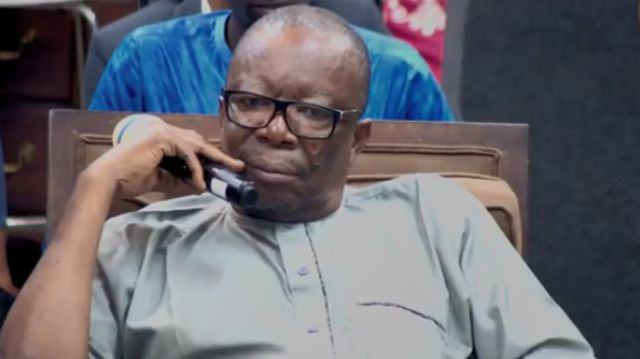By KEMI KASUMU
The Academic Staff Union of Universities (ASUU) has said that it only suspended its eight-month-old strike because of court order and in the interest of Nigerian students, and not because the issues have been resolved.
It will be recalled that the union had lashed out at the order by National Industrial Court in Abuja, which ordered that it called off its strike for Nigerian students to return to schools, with some of its branch leaders describing the order of court as kangaroo judgement.
Rather, the ASUU, despite pleas by several bodies including the Muslim Media Watch Group of Nigeria (MMWGN) that it should obey and not appeal against the industrial court order to prove its patriotism while urging it to come at middle course with the Federal Government, chose to go to Court of Appeal to seek stay of execution of the order and did not call off the strike.
The Court of Appeal refused to grant the union’s prayers as it dismissed its application for stay of execution and ordered the striking lecturers to return to class upholding the National Industrial Court ruling in a case brought to it by the Federal Government, asking it to obey the lower court before complain.
The appellate court, however, gave ASUU to choose between calling off its strike in seven days and enjoy the rights to appeal against the order or fail to do so and lose it all. Days after the appeal court judgement, ASUU called off the strike and ordered members to resume lectures.
But the ASUU National President, Prof. Emmanuel Victor Osodeke, said the decision of his union to suspend the strike was not out of their willingness or happiness but because it was asked to do so by the court and because its members are law abiding people, adding that they also called off the strike in the interest of Nigerian students.
“As you have seen from our press release – although there were interventions by the Speaker (Femi Gbajabiamila) and others – the major reason we are resuming is because we are obeying the industrial court’s judgement. The issues have not been fully resolved and no agreements signed,” he said while featuring in an interview programme on Channels Television on Sunday.
“We are resuming because we are a law-abiding organisation and we don’t want to break the law. We are also hoping that the intervention of the Speaker as promised by him will resolve this problem within a very short time. So, the issues have not been resolved but we would resume because of that court injunction.”
Osodeke, who blamed the Minister of Labour and Employment, Chris Ngige, for taking the matter to court, argued that the best way to tackle trade disputes involving academics is “negotiation”.
He, however, did not say what will happen if no agreement is still signed after his stated “short time” as to whether he will direct his union to resume their strike action or not.
“But one of the ministers, the Minister of Labour, believes that the best way is to force them to class. But because of the interest of the Nigerian people – the students, their parents, and the Speaker who is intervening – our members will teach,” Osodeke said.
He said the lecturers may be unmotivated going back to class if the “no-work, no-pay” policy of the Federal Government stands, maintaining that “you cannot expect a hungry man” to be at his best.
To avoid this, Osodeke said the government “should pay the salaries” to the university teachers whom he added have to “meet up” with the backlog of classes missed during the strike, saying it is not done anywhere in the world that lecturers would go on strike and government would say ‘no work, no pay’.
Fact-checks revealed that there is no government since the return of democracy in 1999, which has invested in education like the currently administration of Muhammadu Buhari has done including that it owned no staff of government any salary.
In fairness to ASUU, it has not countered the government’s claims in this regard, however, it is insisting that the agreement it reached with the Goodluck Ebele Jonathan government in 2009 during oil windfall of between $100 – $140 per barrel be implemented by a Buhari government that came in 2015 on tight situation of $30 per barrel and still struggling to meeting up with finances, our sources said.
The DEFENDER reports the ASUU leadership’s talking about non-payment of salaries is new to the reason it shutdown the universities across the country in the first place but is on ground to update its readers, nationally, continentally and globally as updates continue to unfold.




